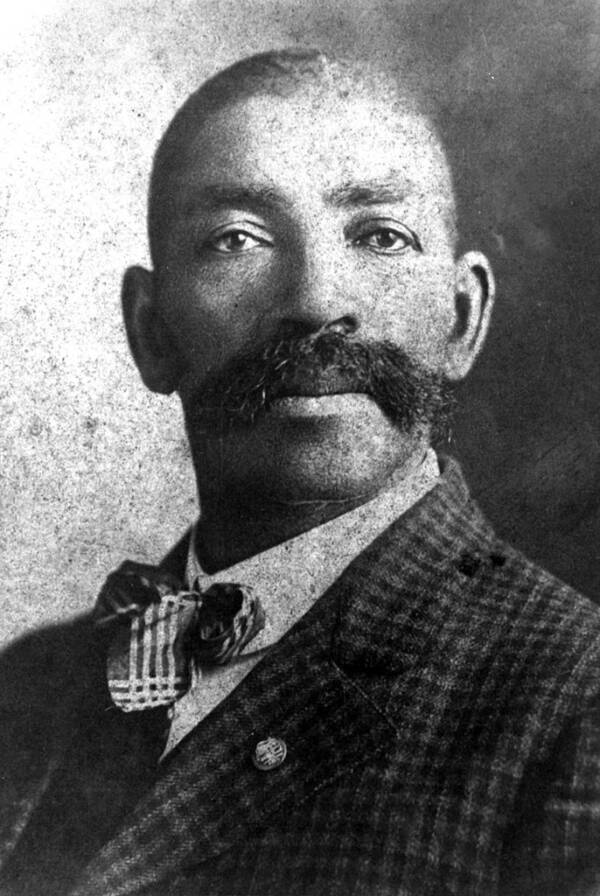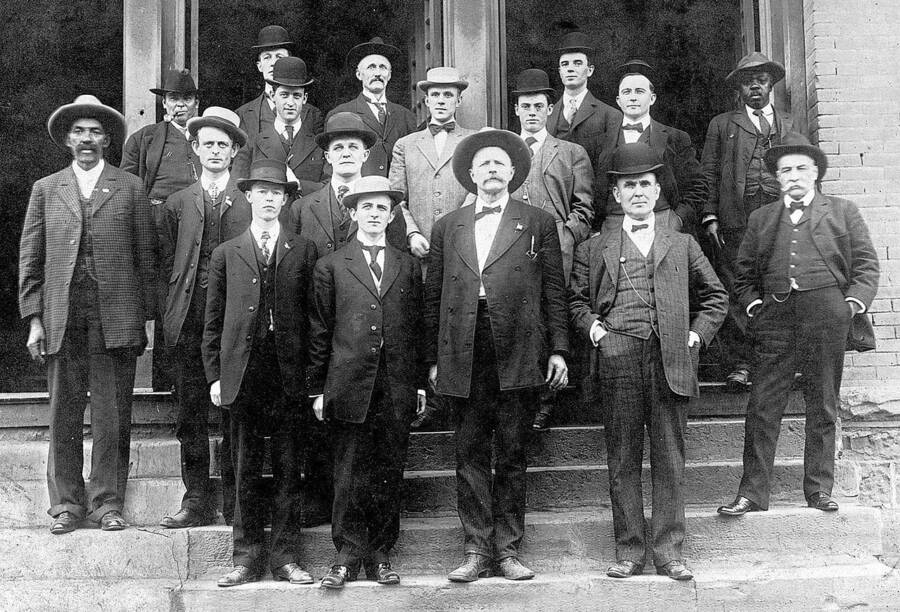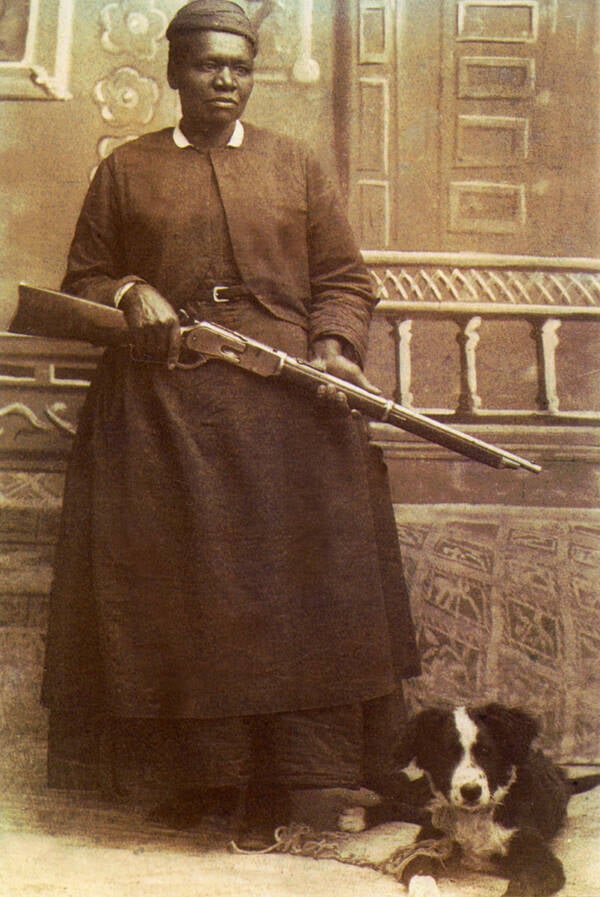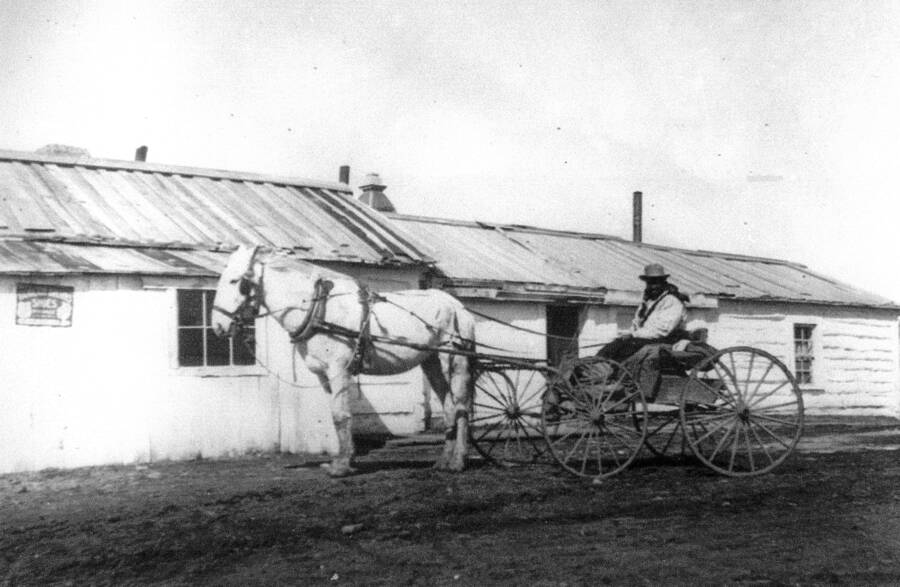Many stories about the Wild West depict it as a white place. Hollywood Westerns feature white lawmen, white outlaws, white cowboys, and white women. But the true Wild West was a place of rich diversity, and Black heroes made up an important part of its fabric.
In present-day Oklahoma, California, Texas, and other places, Black Americans lay down the law as deputies, delivered the mail as fearless postwomen, and roamed the Plains as cowboys. Many were born enslaved and searched the West, like their white countrymen, for freedom.
Below, discover the stories of Black Wild West heroes like Bass Reeves, the fearless deputy of Indian Territory, Buffalo Soldiers like Cathay Williams and Mark Matthews, and indomitable women like Mary Ellen Pleasant.
Bass Reeves: The Formidable Deputy Marshal Of Indian Territory

Public DomainSome believe that Bass Reeves helped inspire the fictional character of the Lone Ranger.
In the rowdy days of the Wild West, few places were quite as raucous as Indian Territory, a stretch of 75,000 square miles in present-day Oklahoma. But a Black deputy named Bass Reeves was determined to lay down the law.
Born a slave in 1838 in Arkansas, Reeves escaped bondage during the Civil War by beating up his master and fleeing to Indian Territory. There, he learned about the lay of the land, rubbed shoulders with the Indigenous Creek and Seminole people, and honed his skill with a rifle.
And when a judge named Isaac C. Parker showed up in the 1870s to bring the law to the lawless land, he looked to men like Reeves to get the job done. In 1875, Reeves became a Deputy U.S. Marshal — and quickly got to work.
Deputized, Reeves proved himself as an effective lawman. Creative — and as wily as the criminals he hunted — he began arresting scores of wanted men.

Public DomainBass Reeves, far left, standing with a group of fellow lawmen in 1907.
“Reeves would round up dozens of outlaws at a time — 12, 15, 16 — while most deputy marshals brought in four or five at a time,” Art Burton, the author of Black Gun, Silver Star, told the Washington Post.
Sometimes, Reeves disguised himself as a farmer or a preacher to fool criminals. Other times, he pretended to be a simpleton so that outlaws would let down their guard. And often, Reeves simply relied on his skill as a marksman. Once, he shot a fleeing outlaw from a quarter-mile away.
“Bass Reeves is the most successful marshal that rides in the Indian country,” raved the Daily Arkansas Gazette in 1891. “He… is a holy terror to the lawless characters in the west… It is probable that in the past few years he has taken more prisoners, from the Indian Territory, than any other officer.”
It’s no wonder why some believe that Reeves, who died in 1910 at age 71, inspired the adventurous tales of the fictional Lone Ranger.
Stagecoach Mary: The Gunslinging Postwoman

Public DomainMary Fields was the first Black woman to deliver mail for the U.S. Postal Service.
Delivering mail could be dangerous business in the Wild West. But few things ruffled “Stagecoach” Mary Fields, who regularly trekked hundreds of miles to deliver mail on the frontier as the first Black postwoman in America.
Fields had been born a slave in the South in the 1830s. After the Civil War, she came under the wing of a nun named Mother Amadeus, who found work for Fields at an Ohio convent, and then at St. Peter’s Convent in Montana.
Fields may have worked with nuns, but she didn’t act like one. She frequented saloons, smoked cigars, got into fights, and shot her guns. And after she pulled a gun on a janitor at St. Peter’s, Mother Amadeus helped her get a job as a mail carrier for the U.S. Postal Service in 1895.

Ursuline Sisters ArchivesMary Fields, pictured with her stagecoach.
As the first Black woman to deliver mail for the U.S. Postal Service, and only the second woman in U.S. history with a mail route, Fields proved that she had what it took. By then in her 60s, she fearlessly delivered the mail, protecting the packages and letters with a rifle and a revolver.
Often, Fields rode 300 miles a week to cover all the stops on her route. Sometimes, she threw on her snowshoes and carried the mail in a sack across her shoulders for miles to make sure that it got delivered.
Her dedication to mail delivery — and her forceful personality — made Mary Fields something of a local legend in Cascade, Montana. There, she was the only woman allowed to drink at the town’s bar who wasn’t a sex worker. Fields could also eat for free at the Cascade Hotel, and when her home unexpectedly burned down, the town helped build her a new one.
She delivered mail for eight years before opening a laundry business. And when she died in 1914, the people of Cascade, Montana, planned one of the largest funerals that the town had ever seen in her honor.